Cataract surgery is one of the most common and effective procedures for restoring vision. However, like any surgery, it’s natural to have concerns and questions. Being informed about the process, risks, and outcomes can help you feel more confident and prepared. Asking your surgeon the right questions before cataract surgery can ensure you have a clear understanding of what to expect. Here are the top five questions to discuss with your surgeon before moving forward with the procedure.
Am I a good candidate for cataract surgery?
Not everyone with cataracts requires immediate surgery. Cataracts develop gradually, and in their early stages, they may not significantly impact your vision. Ask your surgeon:
- How advanced are my cataracts?
- Will waiting longer affect my surgery outcomes?
- Are there any alternative treatments I should consider?
Your surgeon will evaluate the severity of your cataracts and how they affect your daily life, such as reading, driving, or recognising faces. If cataracts are interfering with these activities, surgery may be the best option.
What type of intraocular lens (IOL) is best for me?
During cataract surgery, the cloudy natural lens is replaced with an artificial lens, called an intraocular lens (IOL). There are several types of IOLs, and the choice depends on your vision goals and lifestyle:
- Monofocal IOLs: Provide clear vision at one distance (near or far).
- Multifocal IOLs: Offer vision at multiple distances, reducing the need for glasses.
- Toric IOLs: Correct astigmatism in addition to cataracts.
Ask your surgeon to explain the pros and cons of each lens type based on your specific needs, such as your work habits, hobbies, and vision preferences.
What are the risks and complications?
Cataract surgery is generally safe, but like any surgery, it carries some risks. It’s essential to understand potential complications and how they will be managed. Common risks include:
- Infection or inflammation.
- Retinal detachment.
- Posterior capsule opacification (a condition that may require a follow-up procedure).
Ask your surgeon:
- What are the chances of complications?
- How will any complications be treated?
- What symptoms should I watch for after surgery?
This will help you stay alert to any unusual signs during your recovery.
What should I expect during and after the procedure?
Understanding the surgical process and recovery timeline can help ease anxiety. Questions to ask include:
- How long does the surgery take?
- Will I need to stay in the hospital or is it outpatient?
- What type of anaesthetic will be used?
For recovery, enquire about:
- How long will it take for my vision to improve?
- Are there any activity restrictions after surgery?
- How many follow-up appointments will I need?
Having realistic expectations about the procedure and recovery will make the experience smoother.
How experienced are you with cataract surgery?
When choosing a surgeon, their expertise and track record are critical. Questions to ask include:
- How many cataract surgeries have you performed?
- What is your success rate?
- Do you have experience with the type of IOL I’m considering?
A highly experienced surgeon will be better equipped to handle any unexpected challenges during surgery and provide you with optimal results.
Cataract surgery is a life-changing procedure that can significantly improve your vision and quality of life. Asking your surgeon these key questions will help you feel informed, prepared, and confident about the process. Don’t hesitate to discuss any additional concerns or clarify doubts with your surgeon—it’s your eyesight, and understanding the procedure is an essential step toward achieving the best outcomes.
Book your consultation with our specialists today.





0 Comments